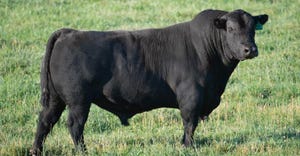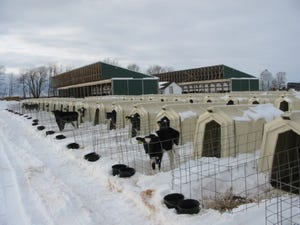The (un)civil war has been waged

*Chuck Jolley is president of Jolley & Associates, a marketing and public relations firm that concentrates on the food industry.
THE New York Times (NYT) just announced the end to civility — but we knew civility was done, even if it was a long time coming.
NYT published a county map of the entire union identifying every county that voted in a landslide for one party or the other. The definition of a landslide was winning by 20 points or more — at least 60% voting for one candidate.
As recently as 1992, those landslide counties were generally a light scattering on the map. The old south showed mostly Democratic, of course, and the rural/agriculture heart of America stretching northward from Texas all the way to the Canadian border balanced out the Southeast by leaning Republican.
Yet, every four years, more and more counties have become landslides, creating a constantly broadening breach between urban and rural America.
This no-holds-barred cage match that was the Donald Trump/Hillary Clinton election campaign was a declaration of a new (un)civil war — a painful war pitting the rural areas of states in the southeastern and center of the nation against the major metropolitan areas of America; this was a war of far western and northeastern urban aggression against a combative rural America.
The new NYT map was almost solidly red in the lightly populated middle, with blue highlighting the heavily populated major urban centers, leading to a popular vote that was almost dead even.
The extreme closeness of the vote was not reflected in the more important electoral college, however. Rural/small-town America flexed its collegiate muscle, pushing Trump into office by a 290-228 margin. The majority of people living in the urban centers were horrified. Meanwhile, ranchers and farmers were dancing in the streets in places like Wichita, Kan.; Sioux City, Iowa; Bismarck, N.D., and Pierre, S.D.
Having one foot in each demographic — rural and urban — I listened to the arguments from both sides. Some were carefully worded and well-reasoned; too many were couched in fact-free, emotionally driven terms of the "if-I-am-then-you-are" school playground type. A few city people complained about the unfair input of uneducated country rubes. Rural citizens sneered at know-nothing, do-nothing urban elites. It was pitchforks and shotguns against AK47s, John Deere green against BMW blue.
That split created the nastiest campaign since World War II. The last time you would find such a similarly savage political battle in our nation's history would probably be Abraham Lincoln versus Breckinridge, Bell and Douglas or Andrew Jackson's two campaigns against John Quincy Adams.
What the two candidates said, as bad as it was, did not compare to what the average citizen on one side of this (un)civil war was saying to his brother on the other side. Charges and countercharges phrased in the vilest of terms were levied. As in that first big American schism more than 150 years ago, old friendships were lost, and families were split apart.
We have just a short time for a farmer from Topeka, Kan., to give a tractor ride to a Royals fan from Kansas City, Mo., or someone from south of the border living in Los Angeles, Cal., to chauffeur a Salinas Valley man around his condo-loaded neighborhood before the hate turns permanent and irrevocable. Know that those people in what's often dismissed as flyover country are as educated as the folks who live in Boston, Mass. Know, too, that getting an agricultural degree from a top flight school like Texas A&M University takes every bit the commitment and brain power as getting an electrical engineering degree from the Massachusetts Institute of Technology.
Those city people who live in a downtown metropolis surely will trip, stumble and fall trying to walk your pasture, but try to survive a week on their turf without their wise counsel. They have their own set of challenges, and they work just as hard to make a living. Both sides of this great divide have their share of people who have to work hard to survive and others who are fully qualified welfare cheats.
The cowboy hat and the newsboy cap may look a lot different, but the heads they rest on hold the same values about family, friends and country. The problem, of course, is that there is a growing tendency for one group to assume moral superiority over the other. Silo citizenship never works.
Volume:88 Issue:12
About the Author(s)
You May Also Like

.png?width=300&auto=webp&quality=80&disable=upscale)

